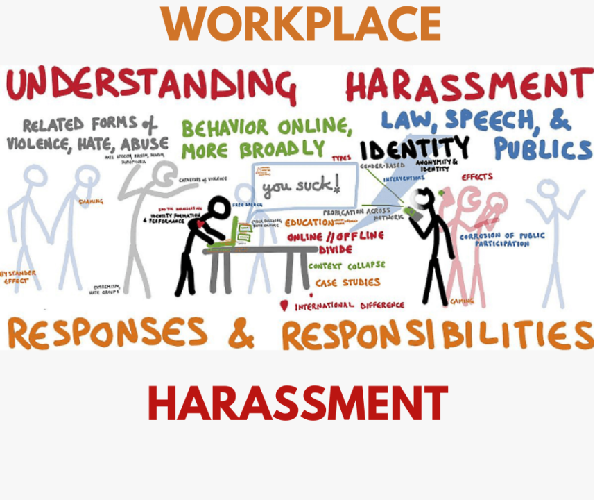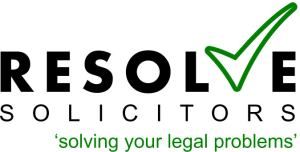Harassment in Employment Law
Legal Guidance
Workplace harassment is a pervasive issue that can deeply affect the well-being of employees and impact the culture and productivity of an organization. Harassment in employment law refers to any unwelcome conduct, actions, or communication that creates a hostile, intimidating, or offensive work environment for an employee. It is a violation of employment laws and regulations in many jurisdictions, and both employees and employers have distinct rights and responsibilities concerning this matter.

Workplace harassment encompasses a wide range of behaviors and actions that can create a toxic work atmosphere. These may include:
- Discrimination: When an employee is treated unfairly due to their race, gender, age, disability, religion, sexual orientation, or other protected characteristics.
- Sexual Harassment: Inappropriate comments, advances, or requests for sexual favors that create an uncomfortable or hostile work environment.
- Bullying: Persistent and harmful behaviors such as verbal abuse, humiliation, or intimidation by colleagues or superiors.
- Retaliation: When an employer punishes an employee for reporting harassment or participating in an investigation.
- Cyberbullying: Harassment that occurs through digital means, such as emails, social media, or messaging apps.
Employment laws and regulations in different jurisdictions provide a legal framework to address and prevent workplace harassment. Key aspects include:
- Prohibited Conduct: Clearly defining what constitutes harassment and the forms of prohibited conduct.
- Reporting Procedures: Outlining how employees should report incidents of harassment within the organization.
- Investigation Process: Describing the steps employers should take when investigating harassment complaints.
- Legal Remedies: Explaining the potential legal remedies available to victims of harassment, including compensation for damages.
Employers have a responsibility to create a safe and respectful work environment for their employees. This includes:
- Establishing Anti-Harassment Policies: Developing and implementing clear anti-harassment policies that are communicated to all employees.
- Training: Providing training on recognizing and preventing harassment and ensuring that all employees understand their rights and responsibilities.
- Investigations: Promptly and thoroughly investigating harassment complaints and taking appropriate corrective actions.
Employees, on the other hand, have the right to work in an environment free from harassment. Their obligations include:
- Reporting: Reporting incidents of harassment to the appropriate channels within the organization following established procedures.
- Cooperation: Cooperating with any investigations into harassment claims and providing truthful information.
- Seeking Legal Counsel: Seeking legal advice if they believe their rights have been violated or if their complaints are not adequately addressed.
In the face of workplace harassment, legal guidance and representation can be invaluable. At Resolve Solicitors, our experienced team specializes in addressing workplace harassment issues, providing expert advice and representation to both employees and employers to ensure that the law is upheld, and the rights of all parties are protected.
FAQ's
If you believe you are experiencing harassment at work, it's crucial to document the incidents, follow your company's reporting procedures, and seek legal advice promptly. An attorney can guide you on the appropriate steps to take to address the situation effectively.
Harassment can extend beyond the physical workplace and encompass online or remote harassment, such as cyberbullying, inappropriate emails, or messages. If you experience harassment in any work-related context, it's important to report it and seek legal assistance.
Yes, you can file a harassment complaint against your employer if they do not take adequate measures to address your concerns. Consult with a legal professional to understand your options and the appropriate legal channels to pursue.
Employees who report workplace harassment are protected from retaliation under employment laws in many jurisdictions. This means that your employer cannot take adverse actions against you for reporting harassment.
Employers should establish clear anti-harassment policies, provide training to employees, promptly investigate harassment complaints, and take appropriate corrective actions when necessary. Consult with legal counsel to ensure your organization's policies and practices are compliant with the law.
Yes, employers can be held liable for the actions of their employees if harassment occurs within the scope of employment. Employers must take reasonable steps to prevent harassment and address it promptly when it occurs.
While having evidence can strengthen your case, it is not always necessary to file a complaint or take legal action. Consulting with an attorney can help you assess the strength of your case and determine the best course of action.
Remedies for victims of workplace harassment may include compensation for damages, injunctive relief, protection orders, and other legal remedies. The specific remedies available can vary based on the circumstances and applicable laws.
The time limits, or statutes of limitations, for filing a harassment claim can vary by jurisdiction and the type of harassment. It's important to consult with a legal professional promptly to understand the applicable deadlines in your case.
Yes, you can contact Resolve Solicitors for expert guidance and legal representation in workplace harassment cases. Our experienced team specializes in addressing workplace harassment and ensuring that the rights of all parties are protected under the law.



